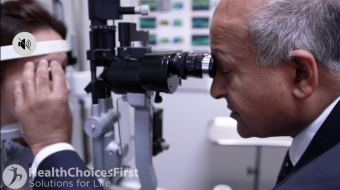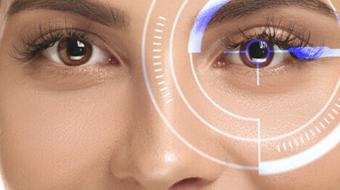Welcome to our complete collection video-based health and wellness resources. All our videos are presented by actual doctors, allied and alternative health practitioners, wellness coaches and health specialists. Our 1,500HD videos cover over 160 health and wellness categories, offering you quality, unbiased information on medical conditions, treatments and healthy living. You can search for topics or find videos by browsing our topics or based on the type of practitioner you're looking for.
Practitioner Types
Learn from the experts
Intravitreal Eye Injection Treatments
Patients are often required to have intravitreal eye injections of anti-VEGF medications in order to treat diabetic macular edema, vein occlusion - either branch or central vein occlusion, or age-related macular degeneration. There are three products that are used, and it is best that your surgeon determines which one will work best in your case.
Are There Risks Associated With Intravitreal Injections?
The risks of intravitreal injections are many, but fortunately, 99.9% of the time people do very well with the injections. They have good results, and they’re happy with the results.
Sometimes there are risks, as with anything in life, there are risks. And they can be as extreme as blindness, but fortunately, that’s rare. For those that can’t have intravitreal injections, for example in pregnancy are not recommended. For those people it is better then to have laser treatment.
What is Refractive Laser Procedures
The lens in our eyes plays a crucial role in focusing light onto the retina, which is responsible for transmitting visual information to the brain. The lens is normally clear and flexible, allowing it to change shape to adjust the focus, similar to the way a camera lens works.






